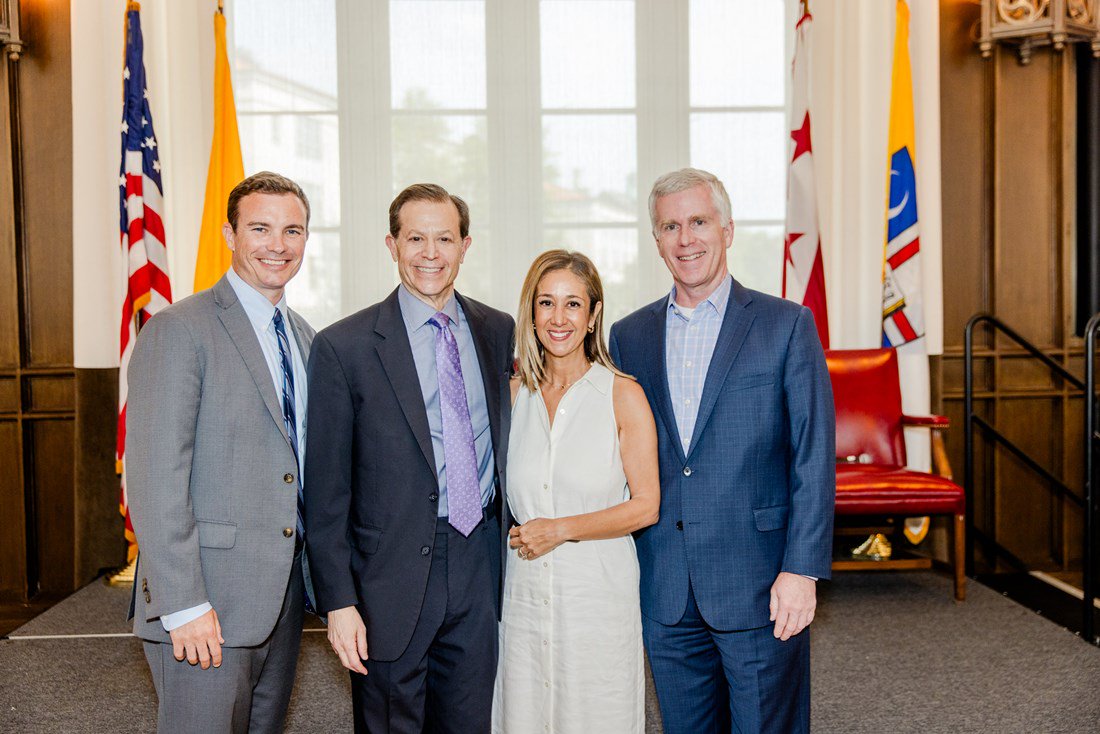Crime prevention requires an all-hands-on-deck approach, and local governments and law enforcement agencies, businesses, and residents each have a unique role to play in ensuring safe and thriving communities.
At Catholic University on July 9, the Metropolitan Washington Council of Governments (COG) joined the Greater Washington Board of Trade, the Greater Washington Partnership, and the Consortium of Universities of the Metropolitan Washington Area to reconvene the Potomac Conference for the first time in over a decade—providing a forum for a diverse group of area leaders to collaborate on public safety initiatives and counteract the impact of crime on the region’s residents and businesses.
The event included briefings and discussions on recent trends, initiatives, and public perception of crime in the region. Data analysis presented to attendees by Hanna Love, Senior Research Analyst with the Brookings Institution, showed some promising long-term trends, with double digit decreases in the rate of property and violent crime in the District of Columbia since the 1990s. Still, spikes in crime rates in recent years have increased public concern.

Public perceptions of crime, even when rates are relatively low, play a significant role in everything from how safe residents feel in their communities to how CEOs make business decisions.
“Perception does often become reality. But I want to also make clear that we have been very intentional about how we’ve been addressing crime since last year. We’ve been collaborating with partners, business, community members to really drive down crime. And, I am happy to say that violent crime in the District is down 30 percent,” said Pamela Smith, Chief of the Metropolitan Police Department.
Regional collaboration is key to sharing up-to-date, relevant information on personal safety. Participants emphasized that the importance of regular, accurate data is two-fold: it allows public safety officials to identify and focus their responses in areas with greater crime impacts, while at the same time providing the public with the most accurate picture of safety in their communities.
“In all of our lines of work, having accurate and current data on public safety is really important. Whether it’s Metro and transit, affordable housing, or climate and energy goals, public safety underpins so much of that. We have to ask ‘how do we make people feel safe?’,” said COG Executive Director Clark Mercer while addressing conference attendees. He added that while sharing worsening crime trends is essential to draw attention to the issue, regional leaders must also highlight positive trends to inform residents and businesses and shape public perception.
Participants discussed ways that business leaders and the nonprofit community can join with law enforcement and local governments to implement public safety initiatives. Recognizing poverty as one of the drivers of crime, discussions focused on methods of crime prevention that also support the economic stability and mobility of residents. Workforce programs can support communities by providing reliable incomes, while placemaking efforts developed in partnership with businesses and local governments can promote greater sense of belonging and inclusion.

COG Executive Director Clark Mercer, President and CEO of the Consortium of Universities of the Washington Metropolitan Area Andrew Flagel, President of the Greater Washington Partnership Kathy Hollinger, and Greater Washington Board of Trade President & CEO Jack McDougle. (Greater Washington Board of Trade)
“Economic mobility is an essential component of community safety. There is a lot of evidence that summer jobs programs can reduce violence by as much as 45 percent, as can workforce development programs. There’s a lot of roles the business community can have in supporting those efforts,” offered Love in her presentation to attendees on the impact of crime in the region.
In short, a holistic approach to public safety that focuses on ways to uplift and invest in communities experiencing greater instances of crime can have far reaching benefits, protecting the wellbeing of residents while bolstering economic development for greater opportunity and advancing regional equity goals.
Businesses, in coordination with their area Business Improvement Districts (BIDs) have proven themselves as critical links to implementing these strategies. Attendees also cited initiatives such as the Safe Corridors and Vacant to Vibrant programs in the District of Columbia as laying the groundwork for addressing the crossover of public safety and community development.
Looking forward, regional leaders hope to build upon “whole community” approaches to public safety, finding regular avenues and methods for cross-sector collaboration to uplift residents and businesses to ensure a healthy, safe, and vibrant metropolitan Washington for generations to come.
COG and its partner organizations are also committed to tackling other key issues in future Potomac Conferences and strengthening regional collaboration across the public, private, and nonprofit sectors.